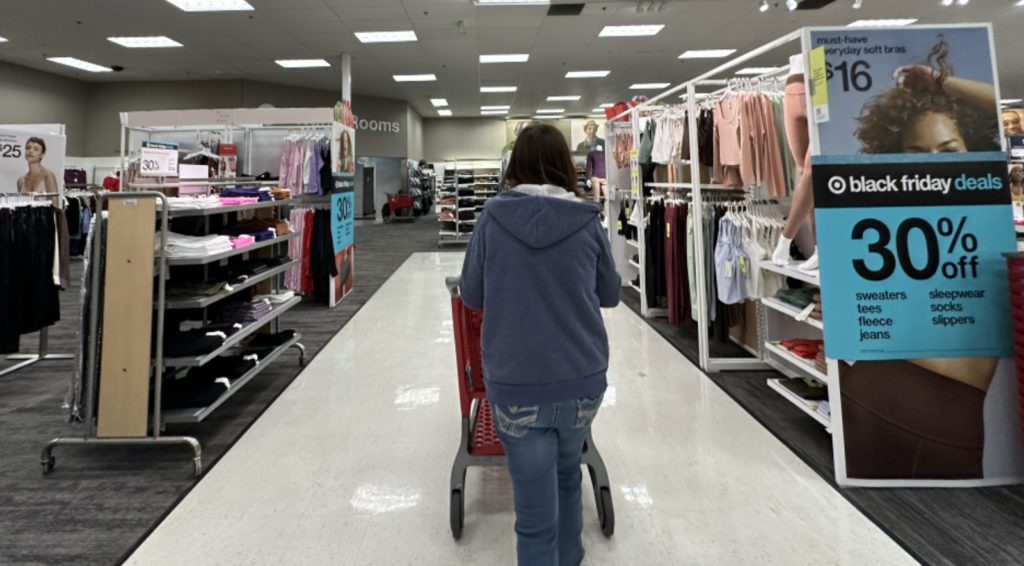
Kailynn Bannon
Opinions Editor
Black Friday is a holiday that Americans have celebrated for years. Shoppers ring in the holiday season by hunting for deals for Christmas gifts. However, due to inflation and the rise of online shopping, Black Friday just isn’t what it used to be anymore.
The day after Thanksgiving is when many people start prepping for the holidays: turning on Christmas music, putting up the tree and hanging the stockings. People get up before the sun has risen to line up outside of their favorite department store. They run to the 64-inch smart TVs and the 50-percent-off kitchen appliances to get the best deals possible.
Companies will start preparing for this event far in advance, sometimes even mid-October. Brands put out ads in newspapers for families to look through together after Thanksgiving dinner.
Over the past few years, customers have gotten less desperate as stores open later in the day and deals drop from 75 percent to 15 percent. Stores used to be packed at 5 a.m., and now there are rarely lines at 10 a.m. While several factors have led to the holiday’s decrease in popularity, the Internet is largely responsible for taking shoppers from the stores.
Junior Claire Conchelos went Black Friday shopping this year and was disappointed to see that most stores only offered a 40 percent discount.
“Normally on other Black Fridays, I feel like the deals were a lot better such as thing being 70-80 percent off,” Conchelos said.
A few days after Black Friday, deals shift from being mainly in stores to only online. Cyber Monday is the same holiday in a sense, but more convenient. People tend to favor shopping from their laptops without having to leave their house before 5 a.m. As Amazon rolls out more deals, more shoppers browse on their couches rather than in person.
Ever since the holiday was started in 2005, more and more people have turned to a digital shopping experience so they can avoid violent crowds, early hours and deals selling out before they grab them. Shopping online also makes it easier to buy from as many stores as desired without having to race to each store.
However, the online shopping boom has stripped Black Friday of what it was essentially made of. While it is not an official holiday, many employees get to take off work so they can celebrate the start to the holiday season. It has been tradition for many to get up early to shop while spending time with friends and family. The same fun can’t really be had when everyone is glued to their laptop screens.
“I definitely prefer Black Friday because I prefer to go in stores to look at options and try on clothes rather than buy online,” Conchelos said.
Due to inflation, prices get higher and markdowns become less extreme. Therefore, buyers are less enthused to do their Christmas shopping all on that one day. Inflation is making it harder for shoppers to buy gifts for their families – the declining turnout at stores on Black Friday is proof. As brands advertise their deals and extend them for a weekend or even a month, buyers will be less inclined to shop that Friday morning.
These shopping experiences have become more leisurely than exciting. There are rarely particular deals that people are literally running to purchase anymore. The novelty and tradition of Black Friday continues to dwindle as the sales drop.







